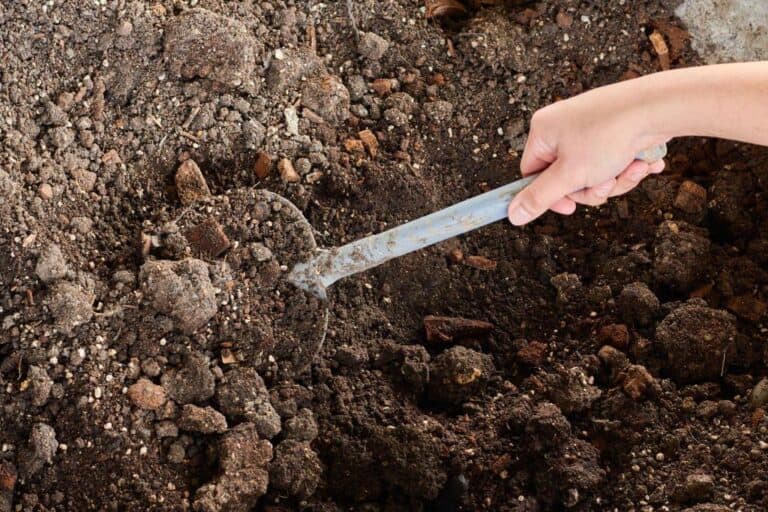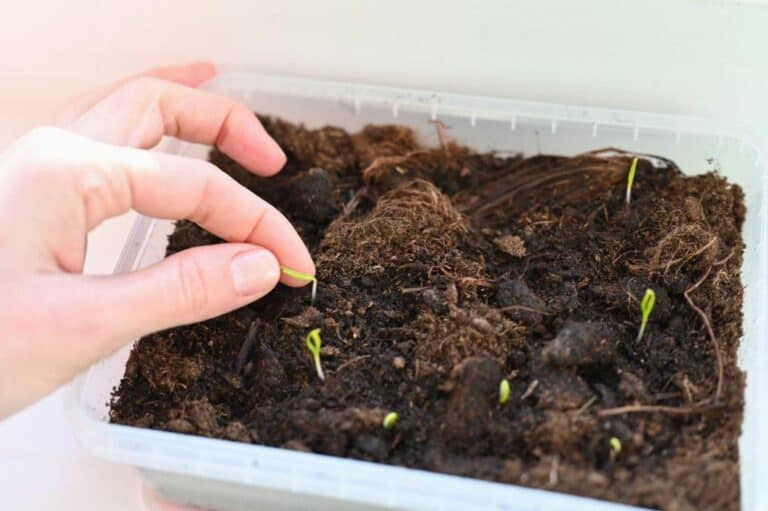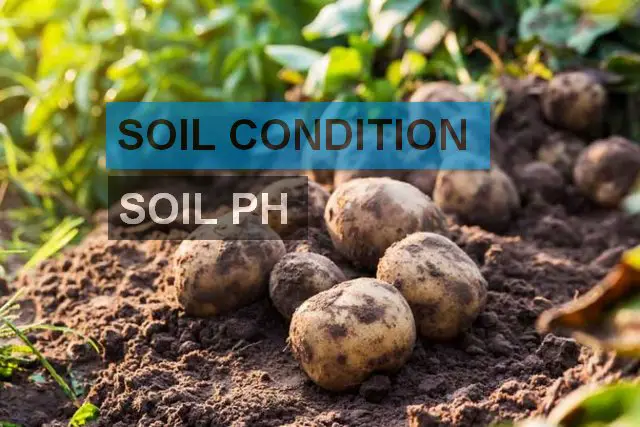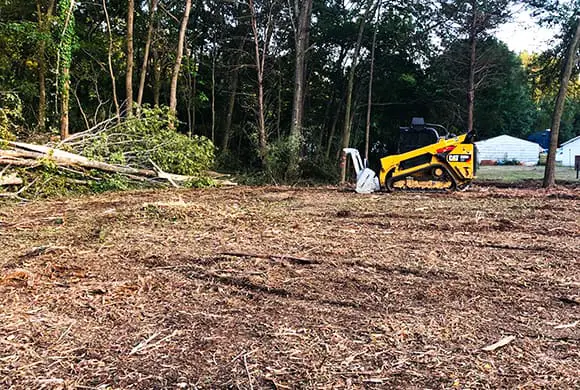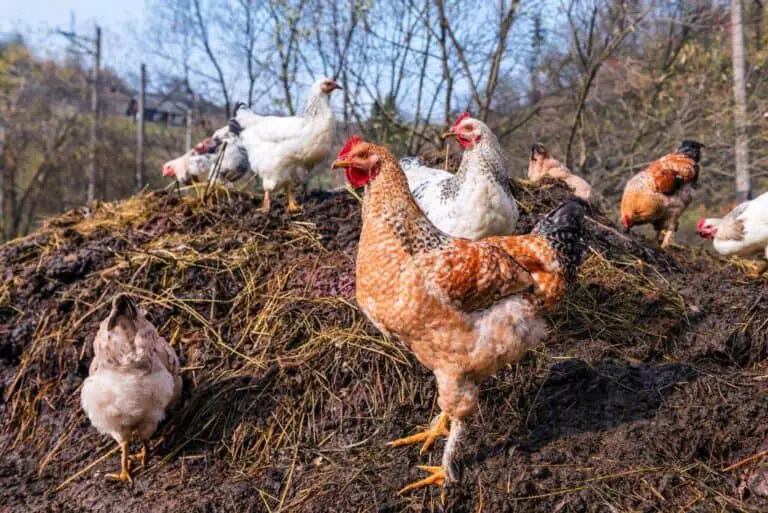Does Roundup Sterilize the Soil or Poison the Ground? Toxic or Harmless?
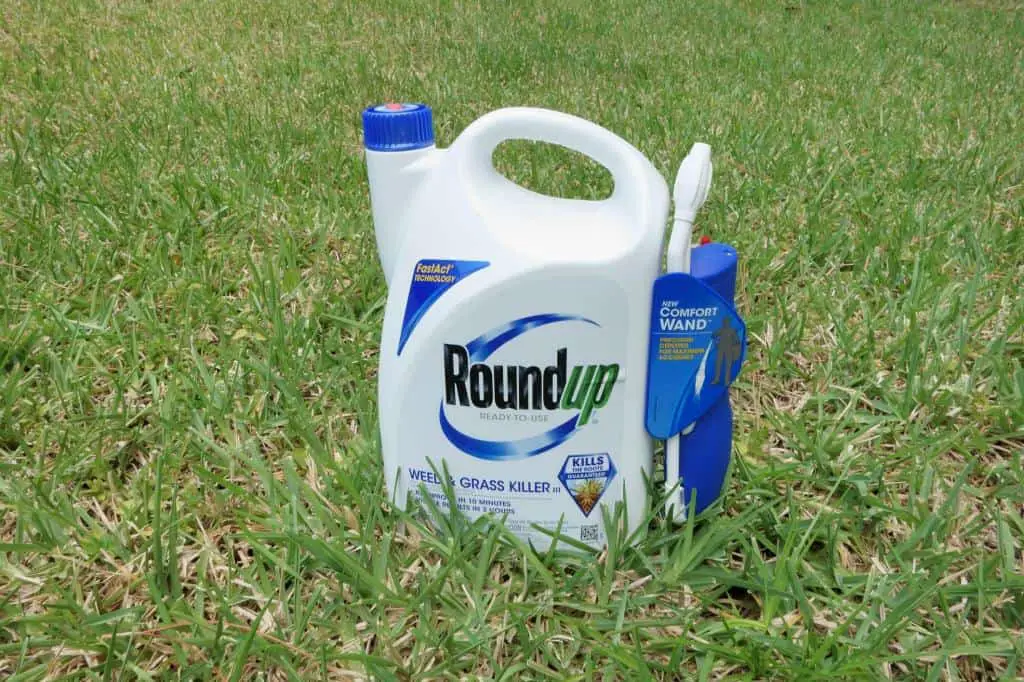
In the world of agriculture and gardening, few topics have stirred as much controversy as Roundup, the renowned herbicide. Discussions on whether Roundup sterilizes the soil or poisons the ground have sparked fierce debates among environmentalists, scientists, and the public. As the world grapples with concerns about the environment and human health, it’s crucial to sift through the myriad of information and myths to uncover the truth about this ubiquitous chemical.
Is Roundup a toxic menace, wreaking havoc on ecosystems and human health, or is it a harmless solution to pesky weeds, supporting bountiful harvests? In this article, we embark on a journey through scientific discoveries and research to unravel the enigma of Roundup. Join us as we dive deep into the evidence, exploring its impact on soil fertility, wildlife, and human well-being. Let’s shed light on this contentious topic and equip ourselves with the knowledge needed to make informed decisions about Roundup’s role in our environment.
The Rise of Roundup: A Herbicide’s Dual Nature
In the world of herbicides, Roundup is a game-changing innovation. Roundup emerged as a boon for modern agriculture by masterfully taming rampant weed growth. Its efficiency was a breath of fresh air for farmers, revolutionizing crop protection and enhancing yields. Yet, as its popularity surged, a haze of uncertainty began to surround Roundup’s ecological impact.
The Roundup saga unfolds on a complex battlefield. Advocates tout its prowess at targeting unwanted vegetation without disturbing vital crops. Nevertheless, the dark cloud of concern lingers. Critics assert that Roundup’s pervasive use might lead to unintended consequences, potentially disturbing the delicate harmony of the soil.
Does it merely suppress weeds, or does it disturb the intricate web of underground life? The discourse intensifies as experts debate whether Roundup is a true menace or a misunderstood tool.
| Pros | Cons |
| Effective weed control | Environmental impact |
| Increased yields | Ecological balance |
| Precise application | Long-term effects |
As Roundup’s controversy unfolds, one thing is certain: the battle rages on, its outcome echoing through the fields of agriculture and environmental stewardship. The pivotal question remains unanswered, leaving us to ponder whether Roundup’s legacy will ultimately be one of triumph or cautionary tale.
Mechanism of Action of Roundup
To truly comprehend the potential impact of Roundup on soil and the environment, we must first delve into its mechanism of action. At the heart of Roundup lies its active ingredient, glyphosate, which wields a powerful disruption on plant growth.
Glyphosate’s mechanism of action centers around its interference with a crucial enzyme known as EPSP synthase. This enzyme plays a pivotal role in the synthesis of essential amino acids, which are the building blocks of proteins vital for plant growth. By inhibiting EPSP synthase, glyphosate effectively sabotages the production of these critical amino acids, crippling the plant’s growth and leading to its eventual demise.
The ability of Roundup to selectively eliminate unwanted vegetation while sparing crops lies in the distinct metabolic pathways present in plants and animals. Since animals do not possess the EPSP synthase enzyme, glyphosate does not have the same detrimental effect on their systems, making it a potent tool for weed control in agricultural settings.
Roundup’s mechanism of action, while effective for weed control, also calls for responsible and cautious use. The disruption of EPSP synthase in plants can have implications for soil health and microbial communities. Overuse or improper application may lead to imbalances in the soil ecosystem, potentially affecting nutrient availability and soil fertility.
Does Roundup Sterilize the Soil or Poison the Ground?
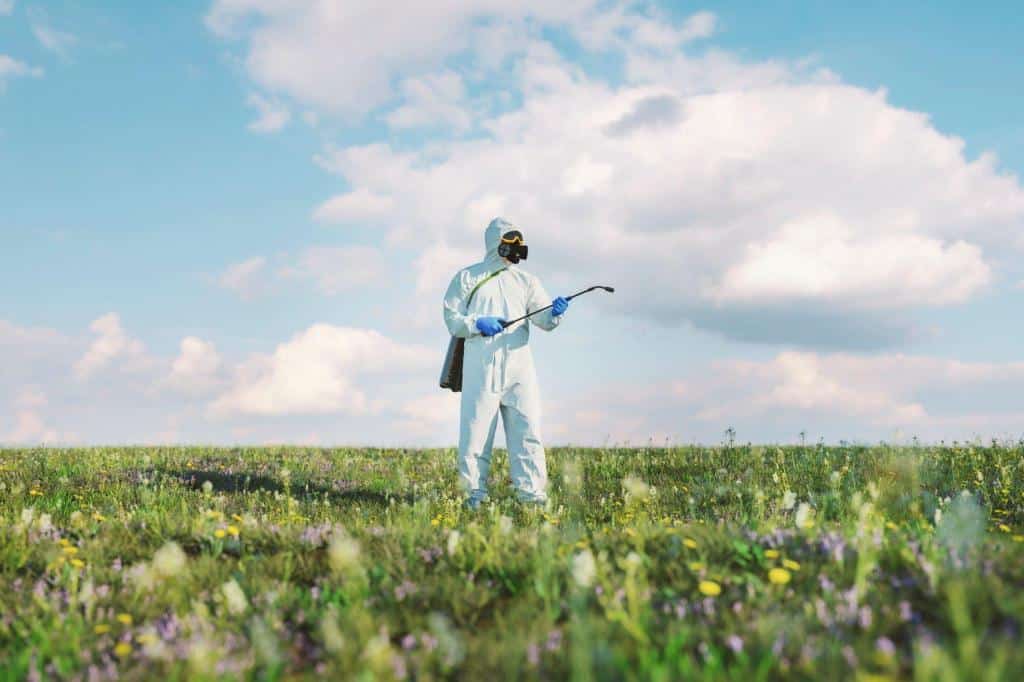
The debate over whether Roundup sterilizes the soil or poisons the ground has been a hot topic of discussion among environmentalists, scientists, and the public. Understanding the potential impact of Roundup on soil and the environment is crucial to making informed decisions.
As mentioned earlier, glyphosate disrupts plant growth by inhibiting the activity of an enzyme called EPSP synthase, crucial for the synthesis of essential amino acids. This disruption leads to stunted plant growth and eventual death, effectively eliminating unwanted vegetation that competes with crops for resources.
However, concerns arise about the potential impact on soil health and microbial communities when Roundup is used excessively or improperly. Overuse can disrupt the delicate balance of the soil ecosystem, affecting nutrient availability and fertility.
There is some debate about the effects of Roundup on the soil. While the manufacturer, Monsanto, claims that the use of Roundup is safe and does not result in toxic soil, there are differing opinions. According to a USDA microbiologist named Robert Kremer, glyphosate can leach into groundwater and contaminate it, especially in phosphorus-rich soil. Roundup is also believed to have toxic effects on helpful microorganisms in the soil.
However, glyphosate is not likely to get into groundwater because it binds tightly to the soil. Additionally, Roundup stays active in the soil for varying periods of time, ranging from one to 174 days. It is important to note that the chemicals found in Roundup can linger in the soil for a significant amount of time.
By understanding the science behind Roundup’s mechanism of action, we can make well-informed choices in its application and work towards sustainable agricultural practices.
Roundup’s Long-Term Effects on Soil Health’s Study
There have been studies conducted on the long-term effects of Roundup, specifically its effects on soil health. Here are some key findings from the available research:
- Crop Health and Nutrition: Continuous exposure to glyphosate, the active ingredient in Roundup, may increase plant susceptibility to diseases (1). Glyphosate residues in soil can delay germination, root growth, and yield of subsequent crops (2). The impact on crop health and nutrition is an area that requires further research (3).
- Microbial Communities: Studies have shown contrasting results regarding the effects of Roundup on microbial communities in soil. Some studies indicate negligible or minor effects on microbial community structure when Roundup is applied in recommended doses. However, increased microbial activity has also been reported, suggesting that microbes can utilize Roundup as a nutrient source.
- Environmental Persistence: Roundup can persist in the environment, including soil, for a significant period of time. The consensus is that Roundup stays active in the soil for at least six months, but the length of time depends on various factors, such as the amount applied and environmental conditions.
It is important to note that there is some uncertainty and debate surrounding the long-term effects of Roundup on soil health. More research is needed to fully understand the potential risks and impacts.
Safe Usage and Alternatives
To harness the benefits of Roundup while safeguarding the environment, responsible usage is paramount. Adhering to the product’s label instructions is a fundamental step in minimizing negative effects.
Proper application, like spraying weeds at the right time, ensures that the herbicide targets weeds effectively without unnecessary environmental contamination. Paying attention to timing and dosage is equally crucial; applying Roundup at the right growth stage and using the appropriate amount will optimize its efficacy and reduce unintended consequences.
Exploring Alternatives:
For those seeking alternative weed control methods, a variety of options are available. These alternatives not only provide effective weed management but also contribute to environmental sustainability. Some options to consider include:
- Manual Weeding: Good old-fashioned hand-pulling of weeds can be labor-intensive but is a safe and eco-friendly approach.
- Mulching: Applying mulch around plants suppresses weed growth while conserving soil moisture.
- Cover Cropping: Planting cover crops helps smother weeds and improve soil health.
- Different Herbicides: Some herbicides with alternative modes of action can be used in rotation to prevent weed resistance.
Integrated Pest Management (IPM):
Implementing an IPM strategy is a holistic approach to weed control. It involves combining multiple techniques to manage weeds effectively while minimizing the use of chemical herbicides. By integrating various methods, such as crop rotation, biological control, and targeted herbicide application, farmers and gardeners can strike a balance between controlling weeds and protecting the environment.
Roundup vs. Biodiversity: A Comparative Analysis
Let’s take a closer look at the impact of Roundup on different aspects of the environment by comparing its effects on soil, wildlife, and human health:
| Aspect | Roundup’s Impact |
| Soil | Alters microbial composition, can reduce beneficial bacteria |
| Wildlife | May disrupt habitat for pollinators and affect plant species |
| Human Health | controversial and deemed safe by regulators, but concerns exist |
Conclusion
In conclusion, the debate over whether Roundup sterilizes the soil or poisons the ground is nuanced and multifaceted. While Roundup can alter soil microbial composition and have negative effects on wildlife and biodiversity when misused, it is not a definitive soil sterilizer or an acute poison to the environment.
The key lies in responsible and informed use, adhering to label instructions, and exploring alternative methods to strike a balance between effective weed control and environmental preservation. Continued research and open dialogue among scientists, regulators, and the public will contribute to a clearer understanding of Roundup’s impact and guide us toward more sustainable agricultural and gardening practices.
In the quest to unravel the mysteries surrounding Roundup’s impact on our environment, the intricate dance between soil health, beneficial organisms, and chemical compositions comes into focus. As we navigate the dichotomy of its effects, the threads of truth intertwine to form a more nuanced understanding.
Delving into the realm of Roundup’s interaction with soil, the delicate balance between its immediate impact and the long-term consequences emerges. While Roundup’s active ingredient, glyphosate, has been criticized for its potential harm to beneficial soil organisms, a comprehensive perspective is essential. Acknowledging the short-term disturbances while also considering the intricate mechanisms of soil regeneration highlights the complexity of the ecosystem at play.
As we contemplate the impact of Roundup on soil, the broader concept of soil sterilization beckons. The chemical arsenal deployed for soil sterilization has ramifications that stretch beyond immediate effects. The intricate web of interactions within the soil community, often intertwined with symbiotic relationships, underscores the importance of striking a balance between eliminating harmful pathogens and preserving the ecosystem’s harmony.
FAQs on Roundup and Its Impact on Soil’s Health
Is Roundup really harmful to humans?
Regulatory agencies like the EPA and EFSA state that, when used as directed, Roundup (glyphosate) is unlikely to pose significant health risks to humans. However, conflicting studies have raised concerns about potential associations with health issues. Responsible use and adherence to label instructions are crucial.
How does Roundup affect wildlife and ecosystems?
Roundup, when misused, can harm non-target plants, affecting habitat and food sources for wildlife. Pollinators like bees and butterflies may be impacted. However, with proper application and responsible use, the negative effects on wildlife and ecosystems can be minimized.
Does glyphosate stay in the soil for a long time?
Glyphosate can persist in the soil for weeks to months, but its breakdown depends on factors like temperature, soil type, and microbial activity. With time, it degrades into harmless byproducts.
Does Roundup sterilize soil completely?
Roundup does not completely sterilize soil. It can alter the microbial composition, affecting some beneficial bacteria. However, soil can recover its diversity over time with proper management.
How does Roundup affect the environment?
Roundup can have both positive and negative effects on the environment. When used responsibly, it helps control weeds and improve agricultural productivity. However, misuse can harm non-target plants, wildlife, and soil health.
Is glyphosate toxic to humans and animals?
Glyphosate is considered low in toxicity to humans and animals when used appropriately. Regulatory bodies have set safety guidelines, and most studies indicate that glyphosate is not acutely toxic to humans or animals.
What are the implications of Roundup use for sustainable agriculture?
The implications of Roundup use for sustainable agriculture lie in responsible application, considering its impact on soil health, biodiversity, and long-term environmental sustainability. Integrating alternative methods and adopting best practices can promote sustainable agricultural practices.

